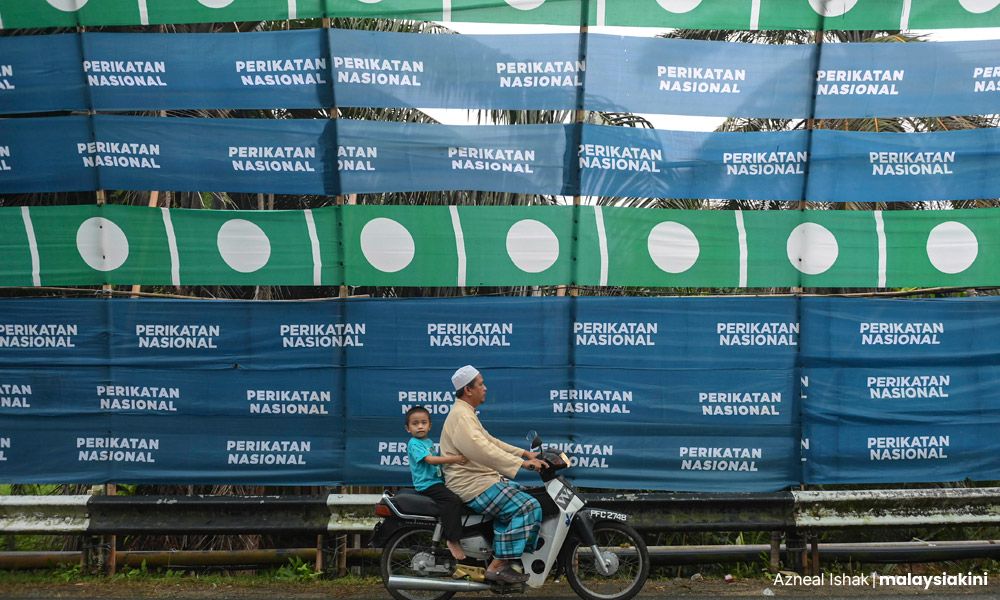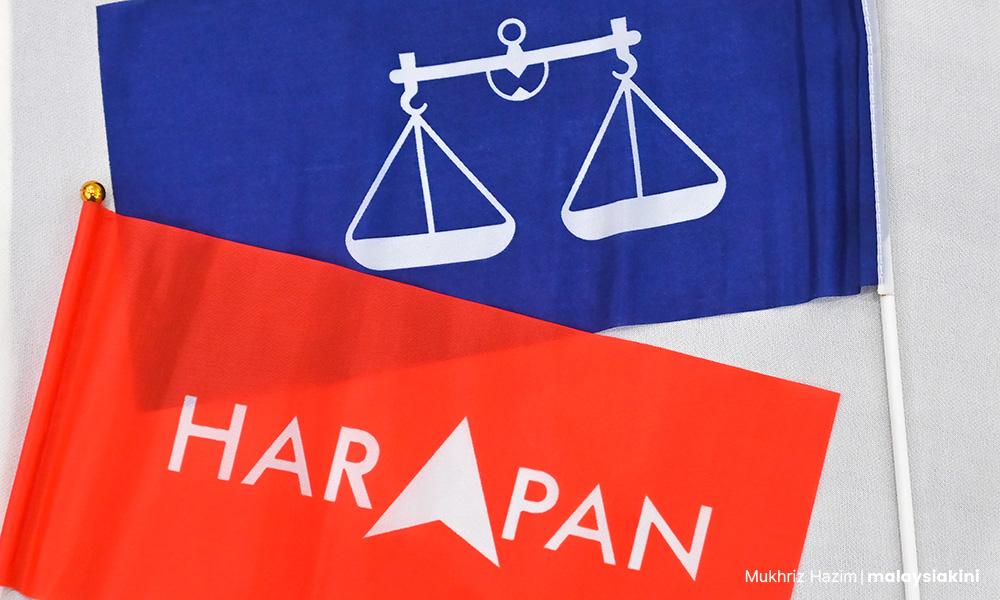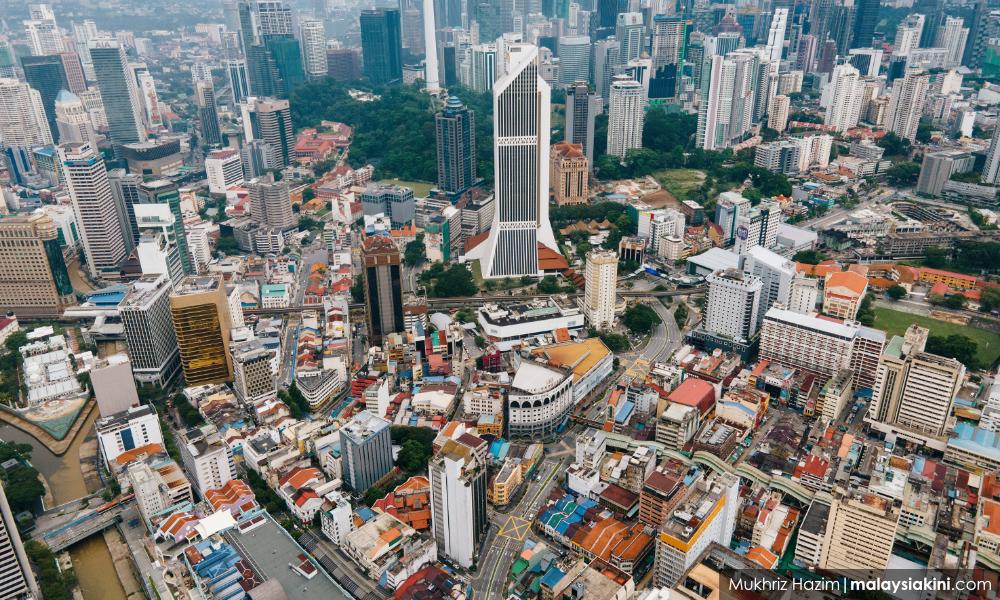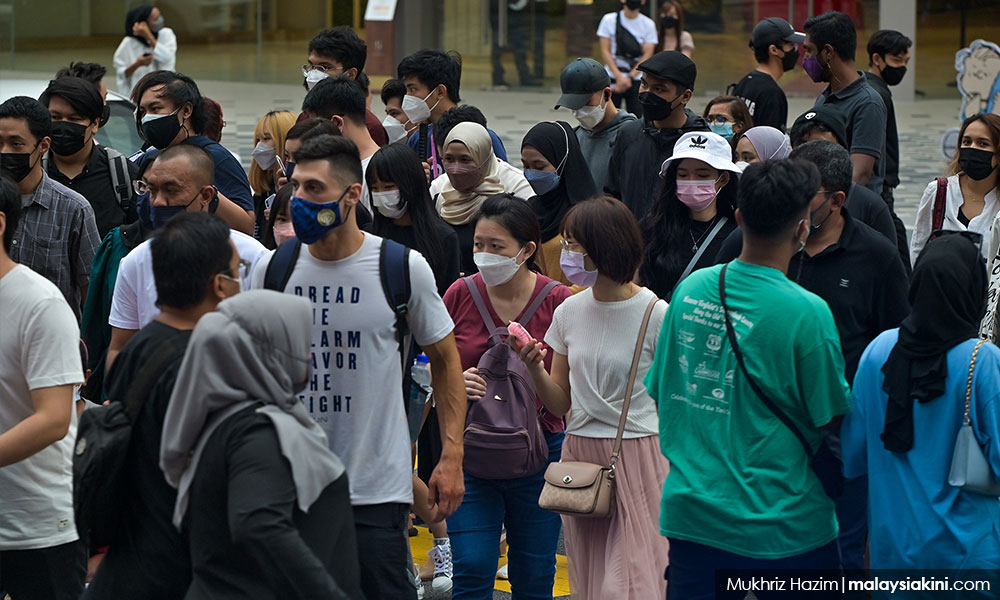Even though the Pakatan Harapan-BN alliance managed to retain Negeri Sembilan, Selangor and Penang in the state election, Perikatan Nasional (PN) also made significant gains.
PN’s electoral performance shows that the unity government is unsuccessful in appealing to a more conservative Malay-Muslim voter base.
The most obvious sign of this is that BN, which was supposed to play the role of attracting Malay votes to the alliance, suffered devastating defeats in Kedah and Terengganu, where they were completely wiped out.
Harapan-BN also lost several Malay-majority seats in key battlefields such as in Permatang Pauh and northern Selangor, to the point that PN denied them a two-thirds majority in Selangor.
On the contrary, the retention of Negeri Sembilan, Selangor and Penang had a lot to do with the support of Harapan’s existing voter base, which tends to come more from a progressive, minority background.
But with their losses in this state election, Harapan-BN will be even more hard-pressed to stem the tide of the “Green Wave”, something they have already been attempting to do for the past eight months.
Political analysts Malaysiakini spoke to affirmed that after the results of the six state polls, the Harapan-BN government will continue to move even further to the right in their quest for more Malay votes.

Conservative voter base
Singapore Institute of International Affairs senior fellow Oh Ei Sun said it is “inevitable” for them to do so to capture the Malay heartlands.
“The results, more than anything else, demonstrated that the majority Malays, or the Malay mainstream, prefer a more conservative, religiously oriented social-political outlook in the country.
“PAS panders to that and they won a lot of seats,” he said to Malaysiakini.
The unity federal government has been attempting to appeal more to the conservative voter base for the past eight months.
Many have pointed to the administration’s recent decision to ban a collection of Swatch watches related to the LGBT and all relevant materials as one such attempt.
Universiti Malaya Department of International and Strategic Studies senior lecturer Khoo Ying Hooi said this shows the government is adopting more of a populist approach, depending on the issues.
“They compromise on issues. There are things where, if they think Malay-Muslim voters are not going to be happy about, they will make a lot of adjustments towards it, and would not want to rock the boat and keep the stability of their partnership,” she said.

Bowing to pressure
However, there are limitations and drawbacks if Harapan-BN bows to pressure to move further right to be more pro-Malays.
It risks alienating Harapan’s core voter base of non-Malays and those in the urban areas, who have long been considered a guaranteed voter bank for the coalition.
This risk has no definite return regarding gaining the Malay support Harapan-BN desperately needs in the coming elections.
There is no surety that whatever the unity government does will be enough to shore up their Malay support.
“As the issue of Malay interests and Islam is defined in a zero-sum game term, no matter how much the government does, it will not stop PN from accusing the government of not doing enough,” said political scientist Wong Chin Huat.
However, political analyst from Universiti Malaya, Awang Azman Awang Pawi has a different take, saying the shift from Malay votes to PN is a “cry for attention” for the government to focus on the Malay economic situation.
“Especially in Terengganu, Kedah and Kelantan, where we can see their relatively slow economic growth, the government should give this attention.
“I think the government should stay in the context of continuing a moderate, progressive stand.
“I think the voting pattern now is no more than just sentiment issues, looking at the worries and concerns of the Malays’ socioeconomic situation in specific states that need to be focused on,” he said.

State of economy
The state of the economy has always been a critical issue for the people, whether during election season or not, especially in recent years following the global pandemic.
Aside from pandering to Malay voters, some have suggested the government focus on economic recovery to win votes from the population burdened with economic anxieties.
Ilham Centre executive director Hisomuddin Bakar agrees with this view, saying the government should prioritise alleviating the high cost of living and sound economic policies.
“I am confident that if the economy is good, the rakyat are not hungry and their salaries are able to support the needs of their families, the support for the government will come without being asked,” he said.
As economic recovery requires long-term planning to bear fruit, a lot will hinge on whether the Malaysian voters have the patience to wait it out and give this government the benefit of the doubt.
The Madani government seems to be aware of this as well.
Khoo points out that they have been playing up the narrative that continuous political stability as long as they are in power is essential to boost the economy and restore investors’ confidence.
But some do not believe that resolving the country’s economic issues will majorly affect Harapan-BN’s Malay support levels.

Crisis mode
Wong said economic grievances may be eased in this manner, but it will unlikely eliminate racial tension among the voters.
“After all, in the eyes of many PN hardcore, Anwar cannot be doing the right thing, as long as it is with DAP,” he said.
Instead, he offers an alternative to “transcend this ethnic zero-sum game mentality” for the country to go into crisis mode so that the rakyat will rally behind the government.
This happened during the global Covid-19 pandemic and the movement control orders, where Malaysians were united regardless of race and ethnicity around the “Kita Jaga Kita” movement.
He added that this crisis management mode can only work if the government involve the opposition shadow ministers and MPs so that they cannot take potshots at the administration.
Another analyst who does not believe restoring the economy will help gain the unity government more Malay support is Oh, who said the idea of Madani does not appeal to most of the Malay population.
“We sometimes lose sight that out there, at least as I saw in Kelantan and Terengganu, where I visited recently, there are a lot of Malays who, for them, perhaps social-economic concerns are not at the top of their priorities.
“To them, that is the way of life, and usually that way of life is a decidedly conservative and religiously oriented one, and they would like to have that kind of lifestyle,” he said. - Mkini



No comments:
Post a Comment
Note: Only a member of this blog may post a comment.